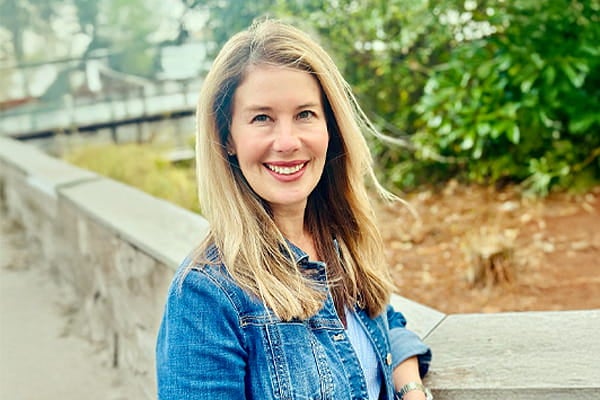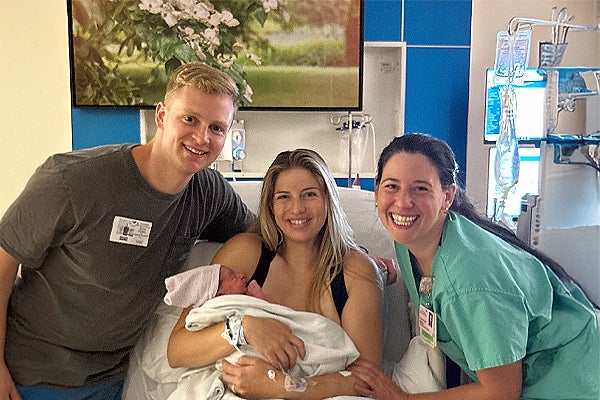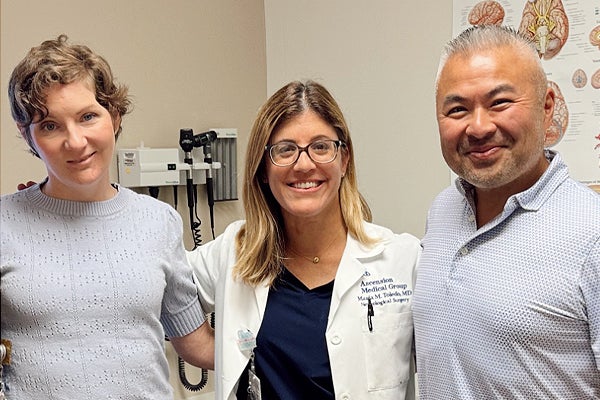Sleep study testimonial

Since he was four-years-old, Branden Baxley had lived with focal seizures that were adequately controlled by medication. Last summer, his epilepsy spiraled out of control.
The 16-year-old went from having five seizures a week to 60, his mom, Tara Baxley, recalled. Some of those episodes were so severe that he was taken by ambulance to Studer Family Children’s Hospital where he was placed on a ventilator.
“During one of those hospitalizations, a nurse noticed that Branden’s oxygen levels plummeted when he was asleep,” she said.
The pediatric hospitalist requested an inpatient consultation with pediatric sleep medicine specialist and pulmonologist Dr. Gulnur Com. Branden’s breathing irregularities concerned her enough to order supplemental oxygen for him to use during sleep and request a follow-up appointment to undergo a sleep study, a test that records the activity of the body during sleep.
During Branden’s sleep study at the Children’s Hospital’s Pediatric Sleep Center, small electrodes were attached to his scalp to monitor his sleep stages and pinpoint possible disruptions in the pattern of his sleep. They also monitored his breathing rate and airflow, as well as oxygen levels and heart rate.
The results showed that Branden was suffering from severe obstructive sleep apnea, which occurs when breathing is partially or completely blocked repeatedly during sleep. Dr. Com recommended continuous positive airway pressure (CPAP) therapy, a device that blows pressurized air into the airway to keep it open during the night and prevent breathing disturbances.
Dr. Com said a lack of sleep can affect electrical and hormonal activity in the brain and may trigger seizures. “There is evidence for a bidirectional relationship between obstructive sleep apnea and epilepsy,” she said. “The mechanisms of the harmful effect of sleep apnea on epilepsy include sleep deprivation, sleep fragmentation, low oxygen level, decreased cardiac functions, and increases in sympathetic activity.”
Two weeks after starting therapy, Branden was seizure-free for the first time in six months. Tara said she’s breathing a sigh of relief that the worst is behind them. “After the first month without seizures, I cried tears of happiness,” she said. “After the three-month mark, I was shocked. We’re four months now, but the worry is always in the back of my mind.”
Tara said getting his seizures under control has empowered Braden in other parts of his life. He has more energy, lost weight and taken responsibility for adhering to CPAP therapy.
The Pediatric Sleep Center at the Children’s Hospital has four beds and couches that fold-down to a twin-sized bed for a child’s parent to use overnight. We offer weekend hours for the convenience of families, with testing done from 7 p.m. to 7 a.m. Sunday through Friday. For more information, visit our website.
Last updated: December 1, 2021


